第85章 RECOLLECTIONS FROM ABROAD(5)
Lord Rothschild, the head of the house, differed entirely from his amiable and accomplished brother. While he also entertained, his mind was engrossed in business and affairs. I had a conference with him at the time of the Spanish-American War, which might have been of historical importance. He asked me to come and see him in the Rothschild banking-house, where the traditions of a century are preserved and unchanged. He said to me: "We have been for a long time the bankers of Spain. We feel the responsibility for their securities, which we have placed upon the market. The United States is so all-powerful in its resources and spirit that it can crush Spain. This we desire to avert. Spain, though weak and poor compared to the United States, has nevertheless the proudest people in the world, and it is a question of Spanish pride we have to deal with."In answering him I said: "Lord Rothschild, it seems to me that if you had any proposition you should take it to Mr. John Hay, our accomplished minister.""No," he said; "then it would become a matter of diplomacy and publicity. Now the Spanish Government is willing to comply with every demand the United States can make. The government is willing to grant absolute independence to Cuba, or what it would prefer, a self-governing colony, with relations like that of Canada to Great Britain. Spain is willing to give to the United States Porto Rico and the Philippine Islands, but she must know beforehand if these terms will be accepted before making the offer because if an offer so great as this and involving such a loss of territory and prestige should be rejected by the United States there would be a revolution in Spain which might overthrow not only the government but the monarchy. What would be regarded as an insult would be resented by every Spaniard to the bitter end. That is why I have asked you to come and wish you to submit this proposition to your president. Of course, I remain in a position, if there should be any publicity about it, to deny the whole thing."The proposition unfortunately came too late, and Mr. McKinley could not stop the war. It was well known in Washington that he was exceedingly averse to hostilities and believed the difficulties could be satisfactorily settled by diplomacy, but the people were aroused to such an extent that they were determined not only to free Cuba but to punish those who were oppressing the Cubans.
One incident which received little publicity at the time was in all probability the match which fired the magazine. One of the ablest and most level-headed members of the Senate was Senator Redfield Proctor, of Vermont. The solidity of his character and acquirements and his known sense and conservatism made him a power in Congress, and he had the confidence of the people. He visited Cuba and wrote a report in which he detailed as an eyewitness the atrocities which the government and the soldiers were perpetrating. He read this report to Mr. McKinley and Senator Hanna. They both said: "Senator Proctor, if you read that to the Senate, our negotiations end and war is inevitable."The president requested the senator to delay reporting to the Senate. The excitement and interest in that body were never more unanimous and intense. I doubt if any senator could have resisted this rare opportunity not only to be the centre of the stage but to occupy the whole platform. Senator Proctor made his report and the country was aflame.
One summer I arrived in London and was suffering from a fearful attack of muscular rheumatism. I knew perfectly well that I had brought it on myself by overwork. I had suffered several attacks before, but this one was so acute that I consulted Sir Henry Thompson, at that time the acknowledged head of the British medical profession. He made a thorough examination and with most satisfactory result as to every organ. "With your perfect constitution," he said, "this attack is abnormal. Now tell me of your day and every day at home. Begin with breakfast.""I breakfast at a quarter of eight," I said.
"Then," continued the doctor, "give me the whoIe day.""I arrive at my office," I said, "at nine. Being president of a great railway company, there is a large correspondence to be disposed of. I see the heads of the different departments and get in touch with every branch of the business. Then I meet committees of chambers of commerce or shippers, or of employees who have a grievance, and all this will occupy me until five o'clock, when I go home. I take a very short lunch, often at my desk, to save time. On arriving home I take a nap of ten or fifteen minutes, and then look over my engagements for the evening.
If it is a speech, which will probably happen four evenings in a week, I prepare in the next hour and then deliver it at some public banquet or hall. If I have accepted a formal address or, as we call them in America, orations, it is ground out on odd evenings, Sunday afternoon and night."The doctor turned to me abruptly and said: "You ought to be dead.
Now, you have the most perfect constitution and less impaired than any I have examined at your time of life. If you will follow the directions which I give you, you can be perfectly well and sound at the age of one hundred. If you continue your present life until seventy, you will have a nervous breakdown, and thereafter become a nuisance to yourself and everybody else. I advise absolute rest at a remote place in Switzerland. There you will receive no newspapers, and you will hear nothing from the outside world.